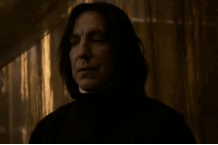Title: The Bar Code Tattoo

Author: Suzanne Weyn
ISBN: 978-0-439-39562-5
Publisher: Scholastic
Date of Publication: September 1, 2004
Reading Level: Elementary and junior high school
Keywords:
From WorldCat (This wasn’t listed on Books in Print) –
* Identity -- Fiction.
* Conformity -- Fiction.
* High schools -- Fiction.
* Science fiction.
* Identity (Philosophical concept) -- Juvenile fiction.
* Individuality -- Juvenile fiction.
* Bar coding -- Juvenile fiction.
Synopsis: (from Goodreads)
Individuality vs. Conformity
Identity vs. Access
Freedom vs. Control
The bar code tattoo. Everybody's getting it. It will make your life easier, they say. It will hook you in. It will become your identity.
But what if you say no? What if you don't want to become a code? For Kayla, this one choice changes everything. She becomes an outcast in her high school. Dangerous things happen to her family. There's no option but to run...for her life.
Comments: As a dystopian novel, this book had so much potential. Everyone is forced to get a bar code tattooed on their wrist that contains all their financial, health and personal information. That has to be a pretty interesting story, right?
Unfortunately, this story falls woefully flat. The plot is little more than Character A moves to Plot Point 2 and must fall in love with Character B who is really working for Villain Gamma. Character C is forced to move across country with her family and has little bearing on the actual plot, but Character A needs a best friend in this formula. Weyn probably needed three times as many pages to tell the story she was aiming to tell in a short story format (the author’s note at the end says that she originally began this as a short story). None of the important scenes get the development they need in order to bring the reader into the story. It’s almost like everything is just background noise. Plus, the ending is very contrived - having the bar code somehow frustrates evolution so much that people without the bar codes start developing psychic powers. Even for a science-fiction story, that is too far-fetched.
This book obviously has an agenda to push and while many authors’ beliefs seep into their stories in subtle ways, Weyn’s beliefs don’t “seep” as much as they flood the plotline, overshadow any semblance of a story and the whole thing comes across as preachy and arrogant (doesn’t help that there’s the obligatory love-triangle thrown in there just as an afterthought).
This could have been a very well-crafted story of how people get so caught up in the new trends and technology of society and even follow big corporations and big government policies blindly to their downfall, but it just doesn’t work here. There’s not enough background on the characters to make the reader care about them. If I were a teen reading this book, I would be insulted that I was expected to take this premise seriously (evidently there’s a sequel. I don’t know why).
At the end of the day, this is what this book does to me:

No more of that, thank you.
Up Next: “Angus, Thongs and Full-Frontal Snogging” by Louise Rennison
On Deck: “Pure” by Terra Elan McVoy; “Except the Queen” by Jane Yolen and Midori Snyder; “Gregor the Overlander” by Suzanne Collins; “Running Out of Time” by Margaret Peterson Haddix; “You Don’t Know Me” by David Klass; “Guys Write for Guys Read” edited by Jon Scieska; “Something Happened” by Greg Logsted
No comments:
Post a Comment